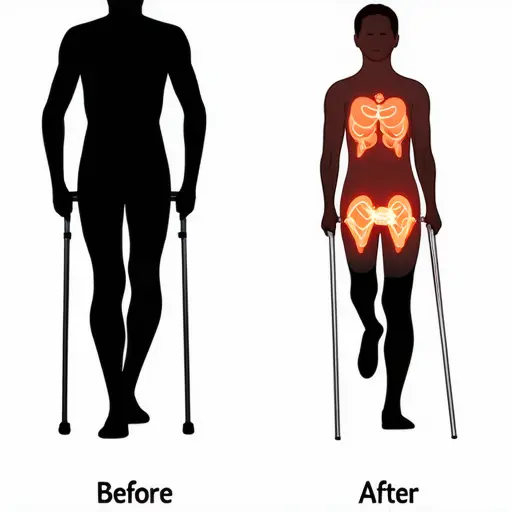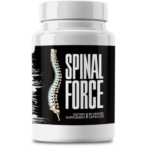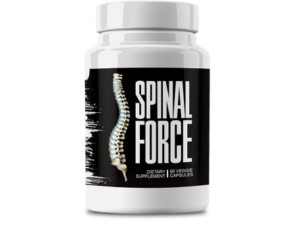This Village-Made Chinese Pain Reliever Eliminates Back And Joint Pain!
RA Knee Pain: When to Consider Surgery as an Option

RA Knee Pain: Is Surgery the Right Choice for You?
If you're living with rheumatoid arthritis (RA) knee pain, you know how it can turn simple tasks into major challenges. The stiffness, the ache that never quite goes away - it wears you down physically and emotionally. While medications and lifestyle changes often help, there comes a time when surgery might be your best shot at lasting relief. Let's walk through what causes RA knee pain, when to consider going under the knife, and how to make the decision that's right for your life.
Why RA Wreaks Havoc on Your Knees
RA isn't just regular arthritis - it's your immune system gone rogue, attacking your joints like they're foreign invaders. And the knees? They're prime targets. Unlike osteoarthritis (that wear-and-tear damage your grandma might have), RA causes whole-body inflammation that zeroes in on your joints.
What's Actually Happening Inside Your Knee?
Picture this: the thin lining of your knee joint (called the synovium) gets inflamed, leading to:
- Morning stiffness that lingers for hours
- Swelling that makes your jeans feel two sizes too small
- Gradual damage to cartilage and bone that changes your knee's shape over time
How to Spot RA Knee Pain (It's Not Just "Bad Knees")
RA has some telltale signs that set it apart:
- Pain that sticks around even when you're binge-watching your favorite show
- Knees that feel warm to the touch and look red
- That frustrating feeling when stairs become your nemesis
RA vs. Osteoarthritis: Know the Difference
Both cause knee pain, but here's how they play out differently:
- RA: Attacks both knees equally, comes with whole-body fatigue, and that morning stiffness? It overstays its welcome for hours.
- OA: Usually picks on one knee, stiffness eases up within 30 minutes of moving around, and it's more about wear-and-tear than inflammation.
Fighting Back Without Surgery
Before we talk about going under the knife, let's explore what might help you right now.
Medications That Can Change the Game
Your doctor might recommend:
- DMARDs: These disease-modifying drugs can actually slow RA's progression
- Biologics: The high-tech option that targets specific parts of your immune system
- NSAIDs: Your quick relief squad for pain and swelling
Physical Therapy: Your Knees' Best Friend
A good PT program can:
- Build up the muscles that act as your knees' personal support team
- Help you keep (or regain) your flexibility
- Take some pressure off those angry joints
Small Changes That Make a Big Difference
Sometimes it's the little things:
- Losing even 10 pounds can feel like taking a backpack off your knees
- A cane isn't giving up - it's smart strategy
- That heating pad? Pure gold after a long day
When It's Time to Talk Surgery
How do you know when you've crossed the line from "manageable" to "maybe I need more help"?
Red Flags That Surgery Might Be Your Next Step
Consider it if:
- Pain's running the show, dictating what you can and can't do
- Your knee looks different - and not in a good way
- Medications that used to help aren't cutting it anymore
What Your X-rays Are Telling You
Severe cartilage loss or bone damage on imaging often means joint replacement could give you your life back.
Building Your Dream Team
You'll want both your rheumatologist and an orthopedic surgeon at the table to discuss:
- How active your RA is overall
- What shape your other joints are in
- What you realistically hope to be able to do post-surgery
Your Surgical Options Explained
Not all knee surgeries are created equal. Here's the lowdown on what might be recommended.
Synovectomy: Cleaning House
This minimally invasive procedure removes inflamed tissue and can:
- Dial down pain and swelling
- Put the brakes on further damage
- Be done through tiny incisions if caught early enough
Knee Replacement: The Gold Standard
When damage is severe, replacement involves:
- Taking out the damaged parts
- Putting in artificial components
- Giving you back pain-free movement that lasts years
Joint Fusion: When All Else Fails
This last-resort option:
- Permanently connects your thigh and shin bones
- Kills the pain but sacrifices mobility
- Is usually only for younger, very active patients
Weighing the Pros and Cons
Like any major decision, knee surgery comes with trade-offs worth considering carefully.
Possible Complications to Discuss
Your team will talk to you about risks like:
- Infection (RA meds can slightly increase this risk)
- Blood clots - preventable but serious
- The chance that pain might not completely disappear
The Road to Recovery
Real talk about what to expect:
- The first month is the toughest
- Full recovery takes 3-6 months of hard work
- But that new knee could give you 10-15 good years
The Life-Changing Potential
Successful surgery often means:
- Finally sleeping through the night
- Walking your dog without dreading it
- Getting your independence back
Getting Ready for the Big Day
Proper prep can make all the difference in your recovery.
Pre-Op Checklist
You'll likely need:
- Bloodwork to check inflammation levels
- A heart check if you have RA-related issues
- To adjust some meds temporarily
Smart Prep Moves
Pro tips from those who've been there:
- "Pre-hab" exercises to strengthen before surgery
- Setting up your home with grab bars and a shower chair
- Lining up help for those first tough weeks
The Rehab Grind
PT after surgery isn't optional - it's your ticket to success, including:
- Gentle early movement to prevent stiffness
- Gradually increasing strength exercises
- Relearning how to walk properly
Alternative Approaches Worth Considering
While not replacements for medical treatment, these might offer extra relief.
Can What You Eat Help?
Some promising leads:
- Anti-inflammatory diets might take the edge off
- Fish oil's omega-3s could reduce tenderness
- Vitamin D for stronger bones
Beyond Traditional Medicine
Some people swear by:
- Acupuncture for pain relief
- Massage to work out stiffness
- Tai chi for gentle, mindful movement
Gadgets That Help
Don't overlook:
- A good cane - it's not giving in, it's being smart
- Knee braces for extra support
- Ergonomic tools to reduce strain
Making Your Decision
Choosing surgery is deeply personal - there's no one-size-fits-all answer.
Key Questions to Ask Yourself
- Have I truly exhausted non-surgical options?
- How much is pain limiting my life?
- Am I ready for the recovery process?
Final Thoughts: Hope on the Horizon
Living with RA knee pain is tough, but today's treatments - from cutting-edge meds to advanced surgical techniques - offer real hope. The right choice is the one that aligns with your health status, lifestyle, and personal goals. With good information and a great medical team, you can find your path forward.
Have you navigated the RA knee pain journey? What's worked (or not worked) for you? Drop your experiences in the comments - your story might help someone else facing these tough decisions.








